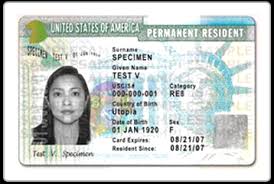This was a case that Amadu Edward Swaray, an immigration attorney at Swaray Law Office, argued for the Appellant in the Minnesota State Appeal Court . Appellant did not win on the appeal, but the case moved the wheel of justice one step further. Swaray Law Office is in Brooklyn Center in Minnesota.
Court of Appeals of Minnesota.
Brian Timothy Geraghty, Respondent, v. Sarah Laber, Appellant.
A11–521
Decided: December 12, 2011
Considered and decided by Halbrooks, Presiding Judge; Stoneburner, Judge; and Worke, Judge. File Nos. 27–PA–FA–09–63, 27–PA–FA–09–67 Jennifer R. Wellner, Wellner & Isaacson, PLLP, Circle Pines, Minnesota (for respondent) Amadu Edward Swaray, Swaray Law Office, Ltd., Brooklyn Center, Minnesota (for appellant)UNPUBLISHED OPINIONAppellant argues that the district court abused its discretion in (1) awarding respondent sole legal and sole physical custody; (2) conditioning parenting time on her receiving therapy for her personality disorder; and (3) awarding respondent conduct-based attorney fees. We affirm.FACTS
Appellant Sarah Laber and respondent Brian Timothy Geraghty are parents of two children, S.B.G. (dob 11/23/06) and S.T.G. (dob 3/24/08). The parties were never married and never resided together. The children initially lived with appellant, but respondent petitioned for physical and legal custody. The court appointed a guardian ad litem (GAL) to represent the interests of the children.
On July 7, 2009, appellant petitioned for an order for protection (OFP) against respondent. A hearing was scheduled for July 14, but appellant failed to appear and the matter was dismissed. The GAL indicated that she had not been able to locate appellant and that she was concerned that she had fled with the children. The district court awarded respondent temporary sole physical and sole legal custody. Appellant and the children had not been located by July 20. The district court held a hearing to address the welfare of the children, noting appellant’s “history of lack of credibility,” failure to appear at hearings, willful deprivation of respondent’s access to the children, and violation of court orders. The court found that there was a substantial risk that the children were in danger, and ordered law enforcement to assist respondent in locating the children, authorizing the use of an Amber Alert if necessary. On August 4, appellant was located in Florida. Respondent flew to Florida to pick up the children. Appellant pleaded guilty to criminal deprivation of parental rights.
Appellant moved to modify the temporary-custody order, making serious claims against respondent, including allegations that he attempted to molest her daughters 1 and that he abused their children. The district court ordered the parties to undergo psychological evaluations and denied appellant’s motion to modify the temporary order. The court noted several concerns regarding: (1) the care of the children while in appellant’s custody because they lived in appellant’s father’s home where he collects hazardous chemical waste that severely burned one child’s leg; (2) the cleanliness of appellant’s father’s home; (3) appellant’s alcohol and drug use; (4) child protection’s involvement with appellant because of the way she treats her daughters; and (5) appellant’s resistance of respondent’s parenting time.
The district court then held a hearing to determine custody and parenting time. Dr. Bruce Renken conducted the parties’ psychological evaluations and testified that he diagnosed appellant as having adjustment disorder with depressed mood and personality disorder. Dr. Renken stated that actions consistent with a personality disorder could include unreasonable, inappropriate, or overblown emotional reactions to stress and patterns of deceit and false reporting. Dr. Renken stated that a personality disorder will not change if untreated. Dr. Renken did not have any concerns regarding respondent’s ability to parent.
The GAL testified that the matter was “not even a close call,” opining that respondent should be awarded sole legal and sole physical custody. She recommended that appellant be evaluated to determine her ability to parent before being granted parenting time. The GAL testified regarding her interaction with the parties. She summarized her impressions in reports received as evidence: in April 2009, the GAL noted that respondent was a “competent and caring” parent, but the GAL lacked information on appellant to determine her ability to parent appropriately; in June 2009, the GAL indicated a “high degree of confidence that the children are safe and well-cared for at [respondent’s] home”; in September 2010, the GAL stated that appellant had discontinued visiting the children after Christmas 2009, and that appellant had filed several false police reports against respondent alleging sexual abuse and improprieties. The GAL testified that the children were “thriving” with respondent; she questioned whether appellant was physically and emotionally available to parent.
The district court analyzed the best-interest factors and awarded respondent sole legal and sole physical custody of the children. The court ordered that appellant would be allowed parenting time after she participated in therapy for her personality disorder. The district court also awarded respondent conduct-based attorney fees. This appeal follows.
D E C I S I O N
Custody
Appellant first argues that the district court abused its discretion in awarding respondent sole legal and sole physical custody. When making a child-custody determination, the district court must consider the best-interest factors. Minn.Stat. § 518.17, subd. 1 (2010). “Appellate review of custody determinations is limited to whether the district court abused its discretion by making findings unsupported by the evidence or by improperly applying the law.” Goldman v. Greenwood, 748 N.W.2d 279, 281–82 (Minn.2008) (quotation omitted). The district court’s findings must be sustained unless they are clearly erroneous. Pikula v. Pikula, 374 N.W.2d 705, 710 (Minn.1985). This court views the record in the light most favorable to the district court’s findings and will reverse only if we are “left with the definite and firm conviction that a mistake has been made.” Dailey v. Chermak, 709 N.W.2d 626, 629 (Minn.App.2006) (quotation omitted), review denied (Minn. May 16, 2006). “That the record might support findings other than those made by the [district] court does not show that the court’s findings are defective.” Vangsness v. Vangsness, 607 N.W.2d 468, 474 (Minn.App.2000).
In determining best interests, courts must consider the following factors: (1) the wishes of the parents; (2) “the reasonable preference of the child”; (3) the primary caretaker; (4) “the intimacy of the relationship between each parent and the child”; (5) “the interaction and interrelationship of the child” with family members; (6) “the child’s adjustment to home, school, and community”; (7) “the length of time the child has lived in a stable, satisfactory environment and the desirability of maintaining continuity”; (8) “the permanence, as a family unit, of the existing or proposed custodial home”; (9) the mental and physical health of all individuals involved; (10) “the capacity and disposition of the parties to give the child love, affection, and guidance”; (11) “the child’s cultural background”; (12) “the effect on the child of the actions of an abuser”; and (13) “the disposition of each parent to encourage and permit frequent and continuing contact by the other parent with the child.” Minn.Stat. § 518.17, subd. 1(a)(1)-(13).
The district court found that both parents wanted custody and that the children were too young to express opinions. The court determined that these factors did not favor either party. The district court found that the children’s cultural background was not a relevant factor, and that there was no evidence of domestic abuse; thus, this was also not a relevant factor. Appellant does not challenge the district court’s determinations on these factors. We now review the remaining factors.
Primary caretaker
Appellant argues that she was the primary caretaker. The district court found that appellant was the primary caretaker until August 5, 2009; since then, respondent has been the primary caretaker. This finding is supported by the record that shows that appellant has had sporadic contact with her sons since December 2009, and no contact since June 2010. Additionally, the district court found that when the children were in appellant’s care, she failed to exercise good judgment and failed to provide emotional nurturing and intellectual stimulation. The record shows that when appellant was the primary parent one of the children spilled acid on his legs and suffered burns and scarring when appellant left him in her father’s care. The GAL reported that there was no concern regarding respondent’s ability to care for the children. The district court found that this factor weighs in favor of respondent. Based on this record, the district court’s finding is not clearly erroneous.
Intimacy of the parent-child relationship
The district court found that since the children have been solely with respondent, he has established a loving and caring relationship with the children. The district court found that appellant has failed to visit the children on a regular basis and was asked to leave the visiting center on one occasion for inappropriate language and behavior. The district court found that this factor weighs in favor of respondent, and this finding is not clearly erroneous.
Interactions
The district court found that since August 2009, the children have had minimal contact with anyone related to appellant. The district court found that the children’s paternal extended family “provide[s] an emotional and intellectual benefit to [the children] and ․ a stable and secure environment.” The court found that this factor weighs in favor of respondent, and this finding is not clearly erroneous.
Adjustment to home, school, and community; Length of time in a stable environment; Permanence of the existing or proposed custodial home
The district court combined these factors and found that the children have adjusted well in respondent’s care; respondent provides a stable home and dependable child care when he works, has stable employment, and takes the children to church. The district court found that appellant resided in her home with her daughters and the father of one of her daughters. The children never lived in this home because when they lived with appellant she lived with her father; thus, they have no connection with the home, the neighborhood or community, and they have never met the man living with appellant. The court found that this factor weighs in favor of respondent, and this finding is not clearly erroneous.
Mental and physical health
Appellant challenges the district court’s reliance on her personality-disorder diagnosis. Both parties underwent psychological evaluations. Dr. Renken testified that there was no evidence that respondent has any mental-health issue. Dr. Renken testified that appellant has an adjustment disorder with depressed mood and a personality disorder. He stated that a person with a personality disorder should receive therapy or the condition will not change. Appellant argues that Dr. Renken stated that appellant’s personality disorder may have caused her to respond to the custody dispute in the manner in which she did, but that he did not say for certain that her personality disorder caused her behavior. But appellant’s behavior—deceit, false reporting, and unreasonable, inappropriate, and emotionally overblown responses to stress—is exactly as Dr. Renken illustrated in describing the reaction of a person with a personality disorder. Therefore, the district court appropriately relied on Dr. Renken’s testimony. The district court determined that this factor weighs in favor of respondent because he “demonstrated an ability to maintain a safe and secure environment for the minor children, to provide for their financial support, and to maintain his emotional and mental equilibrium despite [appellant’s] abduction of his children and false allegations.” This finding is not clearly erroneous.
Capacity of the parties to offer love, affection, and guidance
The district court found that appellant “lacks the necessary emotional skills and mental health status to adequately parent” the children. The district court noted that there is evidence that appellant failed to protect one of her daughters from the other. The district court also noted that appellant is unable to provide guidance and care based on her inappropriate conduct at the visitation center. The district court found that this factor weighs in favor of respondent because the GAL testified that the children are thriving with respondent. Further, respondent provides guidance, love, affection, and support, and provides the benefits available through a supportive family and church. This finding is not clearly erroneous.
The disposition of each parent to encourage and permit contact by the other parent with the children
Finally, the district court found that respondent has fully cooperated in bringing the children to the visitation center to see appellant. Conversely, the district court found that appellant did not allow respondent contact, she kidnapped the children, and she made false allegations against respondent in an attempt to deprive him of his parental rights by way of the court system. The district court found that this factor weighs “heavily in favor” of respondent, and this finding is not clearly erroneous.
The district court thoroughly analyzed the best-interest factors and determined that respondent should be awarded sole legal and sole physical custody of the children. The record supports this determination.
Appellant also argues that the GAL was biased against her. Appellant’s examples of this bias include that the GAL: (1) indicated that appellant made “dubious recent allegations” against respondent; (2) failed to mention that respondent assaulted appellant’s nephew; (3) failed to mention appellant’s interaction with the children; and (4) alleged that appellant kidnapped the children, but failed to mention that the “kidnapping was staged by respondent and his extended family.” The record shows that appellant did make serious allegations against respondent that turned out to be false. Respondent admitted to assaulting appellant’s nephew and explained the surrounding circumstances; thus, the district court considered this information. The GAL discussed her observations of appellant’s interaction with the children; that the GAL did not find that the interaction was positive does not indicate that the GAL was biased. Finally, appellant pleaded guilty to depriving respondent of his parental rights by taking the children to Florida when the children were court-ordered to be in respondent’s care. Therefore, the GAL did not falsely allege that appellant kidnapped the children; indeed, appellant kidnapped the children. The record does not show any bias on the part of the GAL.
Parenting time
Appellant next argues that the district court abused its discretion by conditioning her parenting time on her participation in therapy. District courts have broad discretion in deciding parenting-time questions, and a reviewing court will reverse the district court’s conclusions only when that discretion is abused. Olson v. Olson, 534 N.W.2d 547, 550 (Minn.1995). A district court abuses its discretion by making findings unsupported by the evidence or improperly applying the law. Pikula, 374 N.W.2d at 710. Findings of fact are reviewed for clear error. Id.
The district court ordered that appellant be allowed supervised parenting time once she participates in therapy for her personality disorder. The district court did not eliminate appellant’s parenting time, but put a condition on it because of safety concerns. If appellant seeks therapy, she can be allowed parenting time. The record supports the district court’s determination that, based on balancing the best-interest factors, the safety of the children depends on appellant addressing her mental-health issues. The district court did not clearly err in finding that appellant must meet this condition in order to receive parenting time.
Attorney fees
Finally, appellant argues that the district court abused its discretion in awarding respondent conduct-based attorney fees because she did not unreasonably contribute to the length and expense of the proceedings. The district court found:
That [appellant] made allegations against [respondent] alleging he had sexually molested [her] daughters․ That [respondent] incurred $11,774.85 in attorney fees and costs in defending himself against those allegations [which were determined to not be credible]․ That [respondent] would not have incurred these fees and costs but for the false allegations made by [appellant].
That [respondent] has incurred $23,304.19 in attorney fees and costs in this paternity custody and parenting time proceeding. That [respondent] incurred $4,130.80 in attorney’s fees and costs in defending himself against the [h]arassment [r]estraining [o]rder proceeding which was brought by [appellant] and dismissed. That [respondent] incurred $1,300.40 in attorney fees and costs in defending himself against the [OFP] proceeding which was brought by [appellant] and dismissed.
That the misconduct, false allegations, and deprivation of parental rights by [appellant] have caused [respondent] to incur substantial attorney’s fees and costs.
A district court may award conduct-based attorney fees “in its discretion ․ against a party who unreasonably contributes to the length or expense of the proceeding.” Minn.Stat. § 518.14, subd. 1 (2010). A district court may award conduct-based fees regardless of the recipient’s need for fees and the payor’s ability to pay. Geske v. Marcolina, 624 N.W.2d 813, 818 (Minn.App.2001). This court reviews an award of conduct-based attorney fees for an abuse of discretion. Szarzynski v. Szarzynski, 732 N.W.2d 285, 295 (Minn.App.2007).
The record shows that appellant unreasonably contributed to the length and, more importantly, the expense of the proceeding. While a large portion of the fees relate to respondent defending himself against false accusations in a criminal setting, appellant raised the false allegations in an effort to deprive respondent of custody and/or parenting time. See Brodsky v. Brodsky, 733 N.W.2d 471, 477 (Minn.App.2007) (stating that a party is entitled to conduct-based fees incurred in an ancillary proceeding if the ancillary proceeding is sufficiently related to the proceeding at issue). The district court made adequate findings supporting the award of attorney fees; therefore, the district court did not abuse its discretion.
Affirmed.
FOOTNOTES
1. FN1. Respondent is not the biological father of appellant’s two daughters.
WORKE, Judge








Comment
Leagle.com reserves the right to edit or remove comments but is under no obligation to do so, or to explain individual moderation decisions.
User Comments